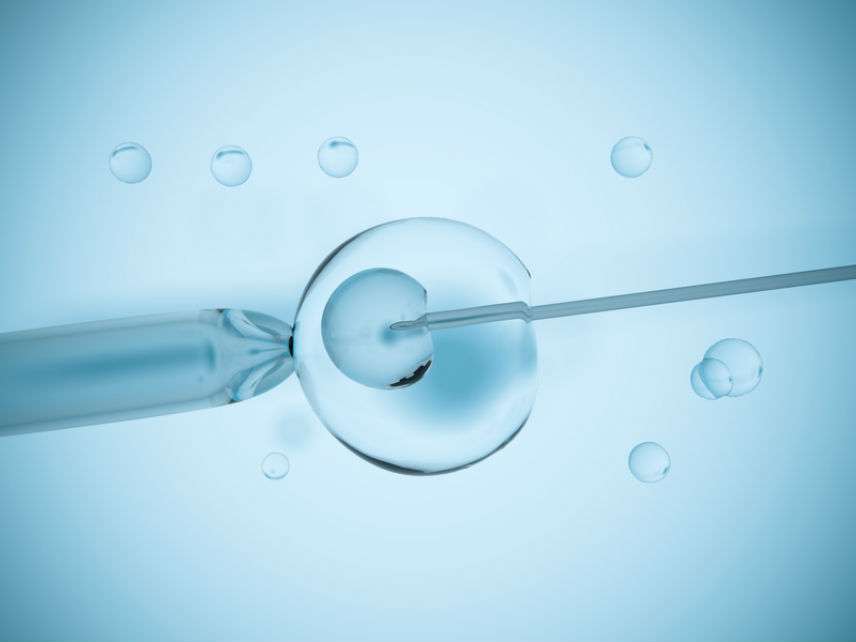First Gene-Edited Human Embryos in the U.S.
Breakthrough that could cure genetic diseases before embryos are implanted in their mothers' wombs.

Shoukhrat Mitalipov, a reproductive biology specialist at Oregon Health and Science University, has used the CRISPR technique to edit the DNA of a large number of one-cell human embryos, MIT Technology Review reports. This is the first known American attempt to create genetically modified human embryos.
Chinese researchers have been working on that for a while. A bioethical firestorm erupted in 2015 when researchers at Sun Yat-Sen University announced that they had tried to use CRISPR to correct the genes for the blood disease beta-thalassemia in 86 human embryos. This proof-of-concept study was not particularly successful. Those gene-edited embryos could never have become babies, since they contained three sets of chromosomes—a result of being double-fertilized. Nevertheless, in high bioethical dudgeon, the editors at Nature denounced the research as "dangerous and ethically unacceptable."
Earlier this year, a team of Chinese researchers at Guangzhou Medical University succeeded at using CRISPR to edit the genes of some normal human embryos. Interestingly, Chinese researchers have found it difficult to get the genetic changes in every cell of the embryos that they seek edit.
Mitalipov has long been pioneer in embryo research. His lab was the first to successfully clone primate embryos in 2007, and in 2013 his team created the first patient-specific human embryonic stem cells from cloning.
The new genome-editing results have not yet been published in a scientific journal, but Technology Review reports that Mitalipov and his team have been far more successful than the Chinese researchers at making sure the CRISPR edits are on-target and take hold in every cell in the embryos.
If the technique proves to be safe, such gene-edited embryos would develop into people who would no longer pass down their familial genetic afflictions to subsequent generations. Naturally, this breakthrough has aroused the fear of designer babies in some timorous bioethicists. In February, fortunately, a panel of 22 scientists and other experts convened by the National Academy of Sciences issued a report stating that "heritable germline genome editing trials must be approached with caution, but caution does not mean that they must be prohibited."
The NAS report did recommend against trying to use CRISPR to edit in enhanced traits into human embryos at this time. It is true that researchers are for the time being much better at identifying broken genes and figuring out what is needed to fix them, but someday it will be possible to edit in enhanced traits too. As I once asked, "What horrors would such designer babies face? Longer, healthier, smarter, and perhaps even happier lives? It is hard to see any ethical problem with that."


Show Comments (32)